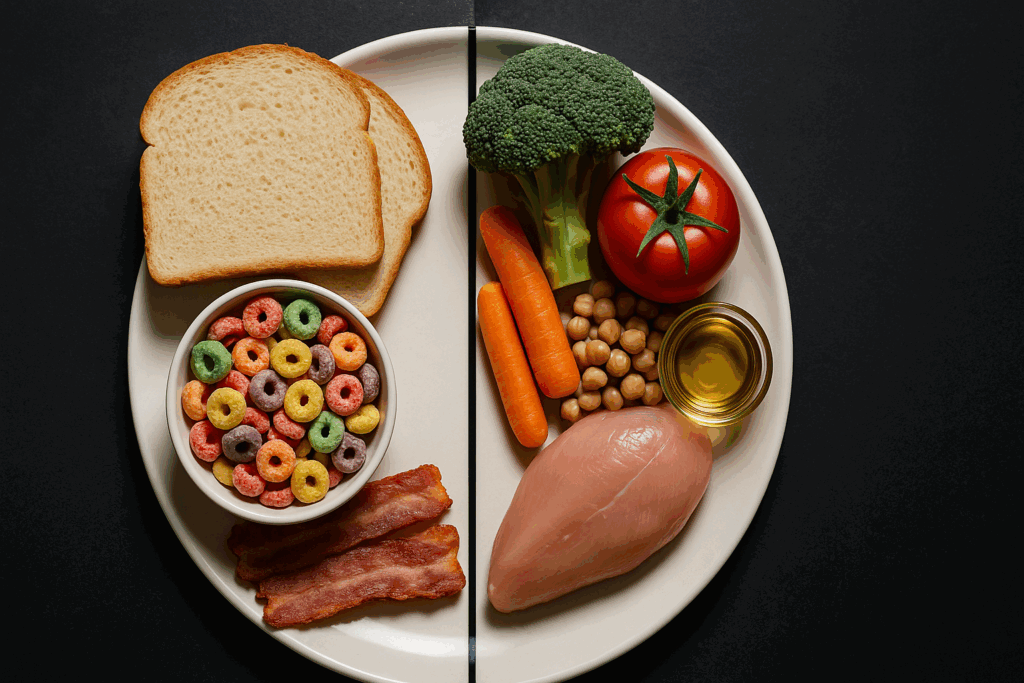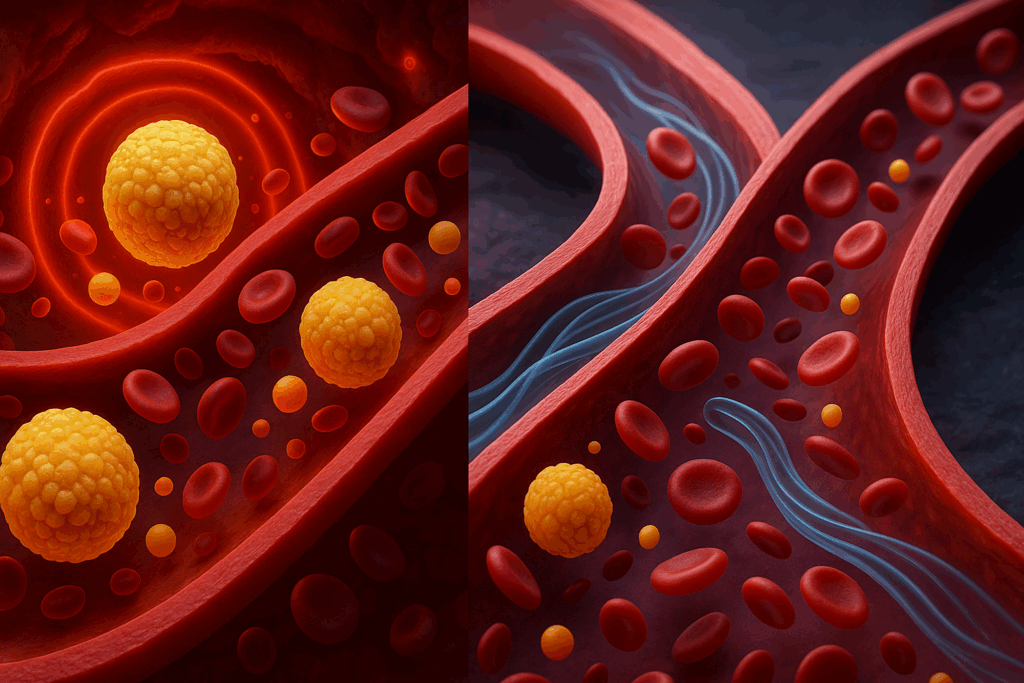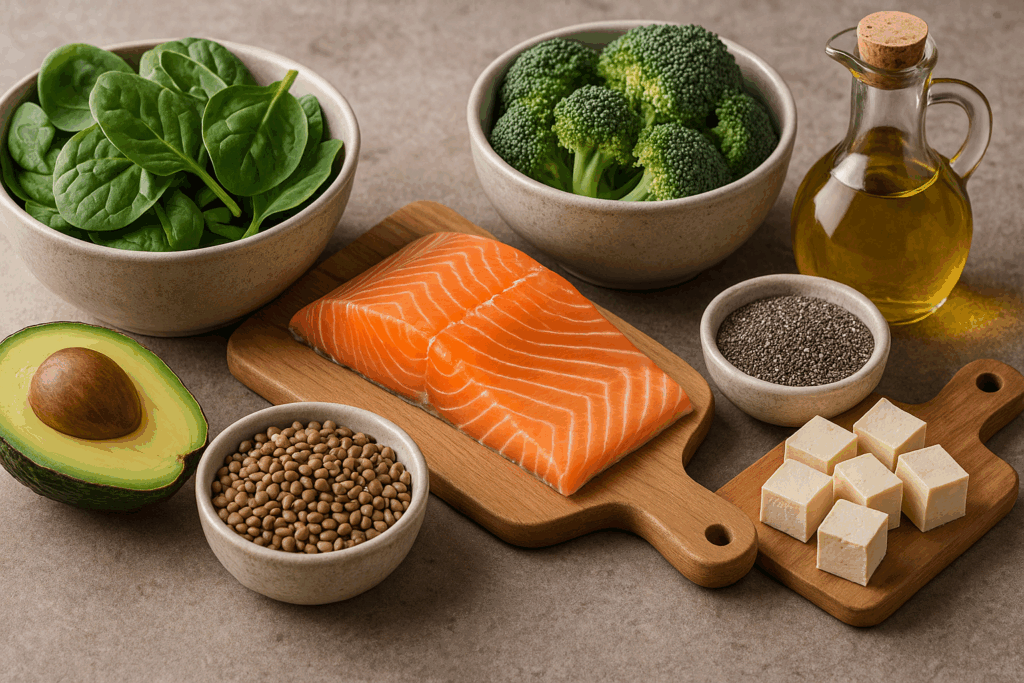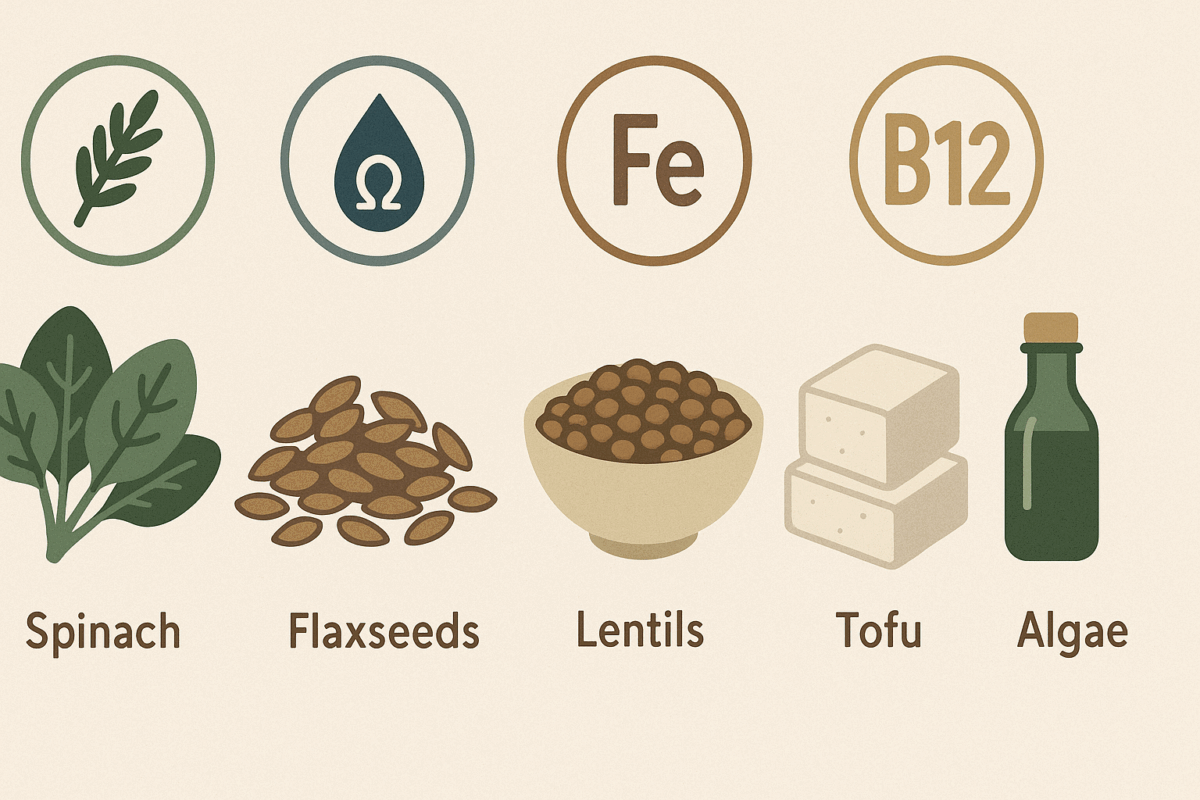In a world increasingly aware of the connection between food and cardiovascular wellness, the importance of embracing a low carb low cholesterol diet has never been more vital. As rates of heart disease and metabolic disorders climb globally, many are seeking nutritional strategies that not only reduce cholesterol levels but also control blood sugar and support weight management. For those aiming to improve long-term cardiovascular health, this dietary approach offers a powerful, science-backed option. More than just a trendy eating pattern, a low carb low cholesterol diet brings together the best of nutritional science to target root causes of cardiovascular strain, including inflammation, insulin resistance, and lipid imbalance.
You may also like : The Ultimate Guide to Choosing a High Protein Diet Name That Fits Your Goals

Understanding the Fundamentals of a Low Carb Low Cholesterol Diet
To embark on this path effectively, it is essential to understand what constitutes a low carb low cholesterol diet. The term “low carb” typically refers to a dietary pattern that restricts carbohydrates—especially refined ones such as sugars and white flours—to reduce blood glucose spikes and improve metabolic flexibility. At the same time, “low cholesterol” involves limiting the intake of dietary cholesterol and saturated fats often found in animal products, processed meats, and certain dairy products. Together, this dual approach reduces arterial plaque buildup and encourages a healthier lipid profile.
The aim is not simply to eliminate all sources of cholesterol or carbohydrates but to prioritize quality. Complex carbohydrates from vegetables and legumes can be beneficial in moderation, just as unsaturated fats from sources like avocados, nuts, and olive oil can support heart health. This balance is key: lowering the intake of simple carbs and saturated fats while enriching the diet with fiber, antioxidants, and healthy fats.

The Science Behind Low Carb Diets and Cholesterol Control
One of the primary motivations behind adopting a low carb low cholesterol diet is its proven ability to improve various biomarkers of cardiovascular health. Numerous clinical studies have shown that reducing carbohydrate intake—particularly refined carbs—can significantly decrease triglyceride levels and improve HDL (“good”) cholesterol. At the same time, minimizing saturated fat and cholesterol from dietary sources has been shown to reduce LDL (“bad”) cholesterol, which is a key risk factor for atherosclerosis and heart attack.
Insulin sensitivity also improves on low carb diets, a critical advantage for those with prediabetes or type 2 diabetes. High insulin levels not only contribute to fat storage but also fuel chronic inflammation, which is a major contributor to arterial damage. By limiting insulin spikes through carb control and supporting lipid regulation through cholesterol moderation, this diet tackles heart health from multiple angles.
Furthermore, emerging research emphasizes the role of nutrient-dense, plant-forward low carb diets that integrate fiber-rich vegetables, omega-3 fatty acids, and phytochemicals in lowering systemic inflammation. This combination enhances endothelial function, improves arterial flexibility, and reduces oxidative stress—key factors in maintaining a healthy cardiovascular system.
How a Low Carb Low Cholesterol Diet Supports Weight Management
Weight management plays a significant role in cardiovascular health. Excess body weight, particularly visceral fat, is closely linked with elevated cholesterol, hypertension, and insulin resistance. A low carb low cholesterol diet can serve as an effective strategy for reducing body fat while preserving lean muscle mass.
Low carb diets are particularly effective in promoting satiety due to their higher protein and fat content, which naturally reduces hunger and prevents overeating. This supports a calorie deficit without requiring obsessive tracking or caloric restriction. Simultaneously, reducing dietary cholesterol and saturated fats means the calories consumed are more likely to support rather than hinder cardiovascular repair.
Additionally, research has indicated that individuals on low carb diets tend to lose more weight in the initial months compared to low fat diets, due to a reduction in water retention and improved blood sugar stability. This early progress can serve as a motivational tool, helping individuals stick with the program and develop long-term habits that support heart health and weight maintenance.

Foods to Embrace for a Low Carb Low Cholesterol Lifestyle
Building a sustainable and enjoyable low carb low cholesterol diet begins with making informed food choices. Vegetables, particularly leafy greens, cruciferous varieties like broccoli and cauliflower, and colorful produce rich in polyphenols, should form the cornerstone of every meal. These foods provide fiber, antioxidants, and critical micronutrients without spiking blood sugar or introducing harmful fats.
Plant-based proteins such as lentils, tofu, edamame, and low-carb legumes like black soybeans are excellent additions, especially for those aiming to minimize animal cholesterol. Lean animal proteins—such as skinless chicken breast, turkey, and certain fish like cod and tilapia—can be consumed in moderation. Fatty fish such as salmon and sardines, rich in omega-3 fatty acids, also offer anti-inflammatory benefits.
Healthy fats play an indispensable role in this dietary pattern. Avocados, olive oil, nuts, and seeds offer heart-protective monounsaturated and polyunsaturated fats without contributing dietary cholesterol. Fermented foods such as kimchi, sauerkraut, and unsweetened Greek yogurt support gut health, which emerging science suggests may influence cholesterol metabolism and systemic inflammation.
Foods to Avoid When Following a Low Carb Low Cholesterol Diet
Equally important is recognizing which foods can undermine your dietary goals. Refined carbohydrates, such as pastries, white bread, sugary beverages, and sweetened cereals, are not only high in sugar but often co-packaged with unhealthy fats. These foods drive insulin resistance, weight gain, and elevated triglycerides.
High-cholesterol animal products should also be limited. This includes fatty cuts of red meat, processed meats like sausages and bacon, and full-fat dairy products. While recent debates have questioned the role of dietary cholesterol, the consensus remains that reducing intake from these sources benefits those with existing heart risk factors.
Trans fats, once common in processed foods and fast food items, are particularly harmful and should be completely eliminated. These fats have been shown to raise LDL cholesterol while simultaneously lowering HDL cholesterol, creating a dangerous imbalance in lipid profiles. Reading labels and avoiding hydrogenated oils is essential for anyone serious about cardiovascular protection.

Meal Planning Strategies to Stay on Track with a Low Carb Low Cholesterol Diet
Adopting any new dietary pattern requires preparation and intention, and the low carb low cholesterol diet is no exception. Planning meals in advance not only prevents decision fatigue but also reduces the temptation to fall back on less healthy convenience foods. The foundation of every meal should be a generous serving of non-starchy vegetables, paired with a lean protein and a source of healthy fat.
For breakfast, options like avocado toast on low-carb bread, chia pudding with almond milk, or a veggie-packed egg white omelet provide satisfaction without compromising heart health. Lunch might feature a quinoa and chickpea salad dressed in olive oil and lemon, while dinner can include baked salmon with roasted Brussels sprouts and mashed cauliflower. Snacks like cucumber slices with hummus or a handful of walnuts can sustain energy levels between meals.
Batch cooking on weekends and storing meals in portioned containers ensures access to quick, nutrient-dense options throughout the week. Additionally, using herbs, spices, and citrus to flavor meals can reduce reliance on salt and processed condiments, which often contain hidden sugars and saturated fats.

Addressing Nutrient Gaps on a Low Carb Low Cholesterol Diet
While this dietary approach offers many benefits, it is not without its nutritional challenges. Restricting carbohydrates can inadvertently reduce fiber intake, particularly if whole grains and certain fruits are also eliminated. Ensuring an adequate supply of fiber from vegetables, legumes, and seeds is crucial for maintaining digestive health and supporting cholesterol elimination through bile binding.
Similarly, avoiding high-cholesterol animal products may limit intake of essential nutrients like vitamin B12, iron, and omega-3 fatty acids. Supplementation or careful food selection—such as including fortified nutritional yeast, iron-rich plant foods like lentils and spinach, and omega-3s from flaxseeds or algae oil—can help fill these gaps.
It’s also worth monitoring levels of fat-soluble vitamins such as A, D, E, and K, particularly if fat intake is reduced significantly. These vitamins require dietary fat for proper absorption and are critical to cardiovascular, immune, and metabolic function. Periodic blood work and consultation with a registered dietitian can help ensure optimal nutrient balance.

The Role of Exercise in Enhancing the Benefits of a Low Carb Low Cholesterol Diet
While diet plays a foundational role, physical activity enhances the cardiovascular benefits of a low carb low cholesterol diet. Exercise supports cholesterol regulation by increasing HDL levels and promoting the removal of LDL from the bloodstream. Additionally, regular activity improves insulin sensitivity, promotes weight loss, and reduces blood pressure—all key factors in heart disease prevention.
Combining resistance training with cardiovascular workouts such as brisk walking, cycling, or swimming creates a synergistic effect. Resistance training helps preserve muscle mass, which is especially important during weight loss, while cardio improves aerobic capacity and endothelial function.
Even modest increases in daily movement—such as taking the stairs, engaging in active commuting, or incorporating yoga or stretching routines—contribute to metabolic resilience. The key is consistency and finding enjoyable activities that fit within one’s lifestyle. Pairing exercise with proper nutrition amplifies the long-term benefits and enhances overall well-being.
Navigating Social and Emotional Challenges When Adopting This Diet
Dietary changes often come with psychological and social hurdles. Adopting a low carb low cholesterol diet may initially feel restrictive, especially in cultures where carbohydrates and animal-based foods are central to traditional meals. Social gatherings, dining out, and peer influence can test one’s commitment and create feelings of isolation.
However, these challenges can be mitigated with preparation and communication. Exploring creative recipes that align with cultural flavors and experimenting with new ingredients can make the transition more enjoyable. Communicating dietary needs with friends and family, or even involving them in meal preparation, can foster a sense of inclusion and support.
Mindful eating practices, such as savoring each bite and listening to hunger cues, also strengthen the connection between food and emotional well-being. Developing a flexible, compassionate mindset allows room for occasional indulgences without guilt, reinforcing the sustainability of this lifestyle.
How to Sustain a Low Carb Low Cholesterol Diet Long-Term
Sustainability is the cornerstone of any successful dietary change. For a low carb low cholesterol diet to become a permanent part of life, it must evolve beyond a temporary eating plan into a mindset centered on healthful choices. This includes building a diverse menu that prevents boredom and incorporating seasonal and local produce to maintain freshness and variety.
Establishing a routine around grocery shopping, meal prep, and food tracking (if helpful) can reduce the cognitive load of decision-making. Utilizing tools like food journals or mobile apps can provide insight into patterns, nutritional gaps, and emotional triggers.
Setting realistic goals and celebrating small victories—like improvements in lab markers, increased energy, or better sleep—helps reinforce motivation. Support networks, whether through healthcare professionals, community groups, or online forums, can offer accountability and encouragement during challenging moments.
Addressing Common Myths and Misconceptions
Many myths persist around low carb and cholesterol-focused diets. A common misconception is that all fats are bad or that cutting carbs will lead to nutrient deficiencies. In reality, the type and quality of fats matter far more than total fat intake. Unsaturated fats, when consumed in appropriate quantities, support heart and brain health without contributing to arterial plaque.
Likewise, not all carbohydrates are created equal. Vegetables, legumes, and minimally processed whole grains (if tolerated) can be part of a low carb framework without negating its benefits. It’s also important to clarify that cholesterol in food does not directly translate to cholesterol in the blood for most people, though some hyper-responders do need to be more cautious.
Understanding these distinctions fosters a more balanced, informed approach and prevents fear-based eating behaviors. It also helps dismantle outdated nutritional dogma, making room for evidence-based, individualized strategies that promote long-term success.
Hormonal Regulation and Appetite Control
The effects of a low carb low cholesterol diet extend beyond lipid management into the realm of hormonal regulation, particularly those hormones involved in hunger and satiety. Ghrelin, known as the “hunger hormone,” decreases with higher protein and fat intake, while leptin, the hormone signaling fullness, becomes more responsive when insulin levels are stabilized.
This hormonal recalibration helps prevent the cycle of cravings and overeating commonly seen with high-carb diets. It also supports metabolic flexibility—the ability to switch between glucose and fat as fuel—which is essential for maintaining energy levels, reducing fat storage, and preventing metabolic fatigue.
Furthermore, cortisol, the stress hormone, can be influenced by dietary patterns. High sugar intake and blood sugar fluctuations can elevate cortisol levels, which in turn increases central fat accumulation and raises blood pressure. A well-balanced low carb low cholesterol diet helps stabilize blood glucose and subsequently mitigates stress-related hormonal imbalances, fostering a more stable mood and better sleep.
Inflammation: The Silent Driver of Cardiovascular Disease
While cholesterol has long been the focal point of heart disease prevention, inflammation is now recognized as a central, if not more important, factor in the development of cardiovascular complications. Chronic low-grade inflammation damages blood vessel walls, facilitates plaque formation, and contributes to unstable plaque rupture—a primary cause of heart attacks.
A low carb low cholesterol diet naturally lowers inflammatory markers by reducing processed sugars, trans fats, and excessive omega-6 fatty acid intake. Moreover, the inclusion of anti-inflammatory foods such as turmeric, ginger, flaxseeds, green tea, and dark leafy greens can amplify this effect. The diet’s impact on insulin sensitivity further contributes to reduced inflammation, as hyperinsulinemia is a known driver of pro-inflammatory cytokine production.
Monitoring inflammatory markers such as C-reactive protein (CRP) alongside lipid panels can offer a more complete picture of cardiovascular risk and help guide dietary adjustments. This broader view empowers individuals to optimize their health outcomes by targeting inflammation in addition to cholesterol.
Culinary Techniques That Enhance Nutrient Bioavailability and Flavor
Success on any dietary program is closely linked to culinary satisfaction. In a low carb low cholesterol diet, innovative cooking techniques can enhance both flavor and nutrient absorption. Roasting vegetables with a drizzle of olive oil and spices caramelizes natural sugars while preserving fiber and antioxidants. Steaming greens minimizes nutrient loss while maintaining texture and volume.
Fermentation, as seen in kimchi, miso, or kefir, not only preserves foods but also enhances their probiotic content. Incorporating umami-rich ingredients like mushrooms, nutritional yeast, and seaweed adds depth to plant-based dishes, reducing the reliance on high-cholesterol flavor enhancers like cheese and butter.
Combining healthy fats with fat-soluble vitamins from carrots, spinach, and peppers improves absorption, maximizing the diet’s health benefits. The use of fresh herbs and acid-based marinades not only amplifies taste but also supports digestion and metabolic activity.
The Interplay Between Mental Health and Cardiovascular Diets
Emerging research highlights a strong link between mental health and dietary choices. Depression, anxiety, and cognitive decline are all influenced by systemic inflammation, oxidative stress, and blood sugar instability. A low carb low cholesterol diet supports mental well-being by stabilizing mood-related neurotransmitters such as serotonin and dopamine, both of which are impacted by nutrient intake and glycemic control.
B vitamins, magnesium, zinc, and omega-3 fatty acids—all found in abundance in heart-healthy, low carb foods—play crucial roles in neurological health. Additionally, avoiding processed sugars helps prevent the rollercoaster of emotional highs and lows that often follow blood sugar spikes.
The act of making empowered, mindful food choices also reinforces a positive self-image and sense of agency, which are critical components of emotional resilience. Over time, these effects can translate into lower stress, improved sleep, and reduced cardiovascular risk, showcasing the interconnectedness of physical and mental health.

Environmental Sustainability and Ethical Considerations
As climate concerns rise, more individuals are seeking dietary choices that align with both health and sustainability. A low carb low cholesterol diet, particularly one that prioritizes plant-based proteins and minimizes industrial meat consumption, can significantly reduce environmental impact.
Legumes, nuts, seeds, and seasonal vegetables have a lower carbon footprint compared to red meat and processed animal products. Opting for locally sourced produce, reducing food waste, and choosing sustainable seafood options further align this diet with eco-conscious values.
Ethical considerations around animal welfare, food justice, and global hunger also intersect with dietary decisions. A balanced, low carb low cholesterol plan can support not only personal health but also broader ecological and ethical goals, offering a more holistic path forward.
Medical Supervision and Considerations Before Starting the Diet
Before making significant dietary changes, it is advisable to consult with a healthcare provider, particularly for individuals with existing health conditions. A low carb low cholesterol diet may require medication adjustments, especially for those managing blood sugar or cholesterol with pharmaceuticals.
Medical supervision ensures that changes align with individual health profiles and that potential contraindications are addressed early. For example, individuals with kidney disease may need to modify protein intake, while those prone to gallstones should be cautious with rapid fat loss.
Ongoing monitoring also provides an opportunity to assess progress objectively. Regular lipid panels, blood pressure readings, and weight measurements help track the diet’s effectiveness and guide necessary adjustments. Partnering with a registered dietitian can further personalize the approach and address evolving nutritional needs.
Monitoring and Adjusting the Diet Over Time
A dynamic approach to dietary planning recognizes that needs change over time due to aging, activity levels, stress, and evolving health conditions. Regular monitoring of lipid profiles, blood pressure, blood glucose, and nutrient levels allows for timely adjustments that keep the diet effective and personalized.
For example, older adults may require more protein to prevent muscle loss, while those engaging in high-intensity training might benefit from strategic carbohydrate reintroduction. Women going through menopause may experience shifts in fat distribution and cholesterol levels, warranting tailored modifications.
Continued education, curiosity, and openness to adaptation ensure the longevity and relevance of the dietary approach. It becomes a living system that evolves with the individual, rather than a rigid set of rules that stifle creativity and progress.
Frequently Asked Questions (FAQ): Exploring the Depth of a Low Carb Low Cholesterol Diet for Modern Health Needs
1. How does a low carb low cholesterol diet influence long-term brain health?
While the cardiovascular benefits of a low carb low cholesterol diet are well-discussed, its impact on brain health is gaining traction in neuro-nutrition research. Lowering systemic inflammation—a hallmark of such diets—has been linked to decreased risk of cognitive decline, especially in aging populations. Additionally, stable blood sugar levels from reduced carb intake support consistent energy delivery to the brain, improving memory and executive function. Healthy fats from sources like olive oil and avocados, staples in many low carb low cholesterol diet plans, offer neuroprotective effects due to their omega-3 content. Emerging studies even suggest that dietary cholesterol control may reduce beta-amyloid plaque buildup, a key marker of Alzheimer’s disease.
2. Can a low carb low cholesterol diet help with autoimmune disease management?
Yes, especially when inflammation plays a central role. Many autoimmune conditions, such as rheumatoid arthritis and lupus, are exacerbated by inflammatory foods. A low carb low cholesterol diet naturally eliminates common inflammatory culprits like refined grains and trans fats. Moreover, by stabilizing insulin and leptin levels, this dietary pattern may modulate immune response and improve symptom management. Anecdotal evidence also suggests symptom relief in patients following tailored keto-style variations that still maintain low cholesterol intake. However, clinical oversight is essential when managing autoimmune conditions with dietary changes.
3. What are the best plant-based proteins to include in a low carb low cholesterol diet?
Balancing adequate protein intake without increasing cholesterol can be tricky, especially for those avoiding animal products. Fortunately, several plant-based proteins meet these criteria. Lentils, chickpeas, tofu, and tempeh are excellent options that offer all essential amino acids when paired correctly. Hemp seeds and quinoa, though slightly higher in carbs, can be moderated and still fit within a structured low carb low cholesterol diet. Spirulina and nutritional yeast are also nutrient-dense additions that bolster B-vitamin and iron intake, especially beneficial for vegetarians. Including these proteins supports muscle repair without compromising cholesterol goals.
4. What unexpected challenges might arise when starting a low carb low cholesterol diet?
Many people encounter transitional issues like fatigue, mood swings, and digestive changes in the first few weeks. These symptoms are often the result of a temporary metabolic adjustment known as the “low-carb flu.” Electrolyte imbalance is another under-recognized concern, since carb reduction influences sodium and potassium regulation. Additionally, individuals used to relying on animal fats may struggle to meet caloric needs without elevating cholesterol intake. A well-planned low carb low cholesterol diet must prioritize nutrient density and food diversity to avoid deficiencies, particularly in B vitamins and fiber. Working with a dietitian can ease this adaptation phase and ensure long-term success.
5. Why is the low carb diet cholesterol relationship more nuanced than once believed?
In the past, dietary cholesterol was wrongly equated with serum cholesterol levels, leading to widespread caution. However, current research shows that dietary cholesterol’s effect on blood cholesterol is modest in most people. That said, when combined with a high saturated fat intake, it may elevate LDL in sensitive individuals. A low carb diet cholesterol strategy works best when it emphasizes unsaturated fats and fiber-rich vegetables, which can actively lower LDL and raise HDL. This highlights the importance of dietary quality—not just macronutrient ratios—when evaluating cholesterol responses on a low carb plan.
6. How does intermittent fasting intersect with a low carb low cholesterol diet?
Combining intermittent fasting with a low carb low cholesterol diet can amplify metabolic benefits such as fat oxidation, improved insulin sensitivity, and cholesterol balance. Fasting encourages the body to utilize stored fat, complementing the carb restriction already in place. Additionally, fasting windows naturally reduce calorie intake, making it easier to stay within dietary cholesterol targets. However, care must be taken not to overconsume saturated fats during feeding windows, especially for those managing LDL levels. For many, this combined approach enhances both weight management and lipid profile outcomes, provided it’s implemented with nutritional balance.
7. What role do micronutrients play in supporting a low carb low cholesterol diet?
Micronutrients are often overshadowed by macronutrient focus but are vital for optimal function. Magnesium, potassium, and sodium help mitigate the electrolyte imbalances that can arise in carb-restricted diets. Vitamins D and K2 support heart health and calcium metabolism, especially when cholesterol intake is minimized. Without careful planning, a low carb low cholesterol diet may also lead to deficiencies in B12 and iron, particularly for those reducing animal protein. Including a variety of leafy greens, nuts, seeds, and fortified plant milks ensures that micronutrient needs are met without spiking cholesterol or carb levels. Supplementation may be necessary in certain cases based on individual labs.
8. Is a low carb low cholesterol diet suitable for high-performing athletes?
Contrary to the belief that athletes need high carbs, many endurance and strength athletes are turning to a low carb low cholesterol diet for improved metabolic flexibility. Once adapted, the body becomes more efficient at burning fat for fuel, allowing for sustained performance in long-duration activities. Plant-based fat sources, such as almonds and flaxseeds, support cardiovascular recovery while keeping cholesterol intake in check. However, anaerobic performance, which relies on glycogen, may initially decline during the adaptation period. Strategic carb timing—like targeted or cyclical low-carb approaches—can help athletes balance performance and health goals simultaneously.
9. What psychological effects might arise from following a low carb diet cholesterol approach?
Shifting to a low carb diet cholesterol framework can significantly impact mental health—both positively and negatively. Many users report enhanced mood stability, reduced sugar cravings, and improved focus due to fewer blood sugar fluctuations. However, restrictive eating can sometimes trigger or exacerbate disordered eating behaviors in susceptible individuals. Social isolation may also occur if dining out becomes difficult or anxiety-inducing due to strict food rules. For these reasons, it’s critical to approach dietary changes with flexibility and self-awareness. Incorporating mindfulness and intuitive eating principles can buffer against psychological stress while still adhering to dietary goals.
10. What innovations are shaping the future of the low carb low cholesterol diet?
The future of the low carb low cholesterol diet is being shaped by biotechnology, personalized nutrition, and functional food development. New plant-based meat alternatives are offering high-protein, low-cholesterol options that still fit within carb-restriction frameworks. Continuous glucose monitors (CGMs) and at-home lipid panels allow users to fine-tune their dietary responses in real-time. AI-driven meal planning apps now consider genetic, microbiome, and lifestyle data to create customized low carb low cholesterol diet protocols. As research evolves, we can expect this dietary model to become more adaptable, sustainable, and accessible across diverse populations and health goals.
Conclusion: Achieving Heart Health with a Low Carb Low Cholesterol Diet
A low carb low cholesterol diet offers a comprehensive and evidence-based pathway to enhancing heart health, managing weight, and supporting metabolic resilience. By focusing on nutrient-dense whole foods, prioritizing fiber and healthy fats, and reducing the intake of refined carbohydrates and saturated fats, this dietary strategy addresses multiple cardiovascular risk factors simultaneously. When combined with regular exercise, mindful eating, and medical oversight, it becomes a sustainable lifestyle capable of delivering long-lasting benefits.
This approach is not a short-term fix or a rigid prescription but a flexible framework that empowers individuals to take control of their health. It encourages informed food choices, culinary exploration, and a deeper connection with one’s body and well-being. As science continues to uncover the intricate relationships between diet and heart disease, the principles of a low carb low cholesterol diet stand as a powerful, accessible solution for those committed to thriving in both the present and the years to come.
Further Reading:
Low Cholesterol Meal Plan for Low Carb High Protein: Balanced Approach
Dramatic elevation of LDL cholesterol from ketogenic-dieting: A Case Series





